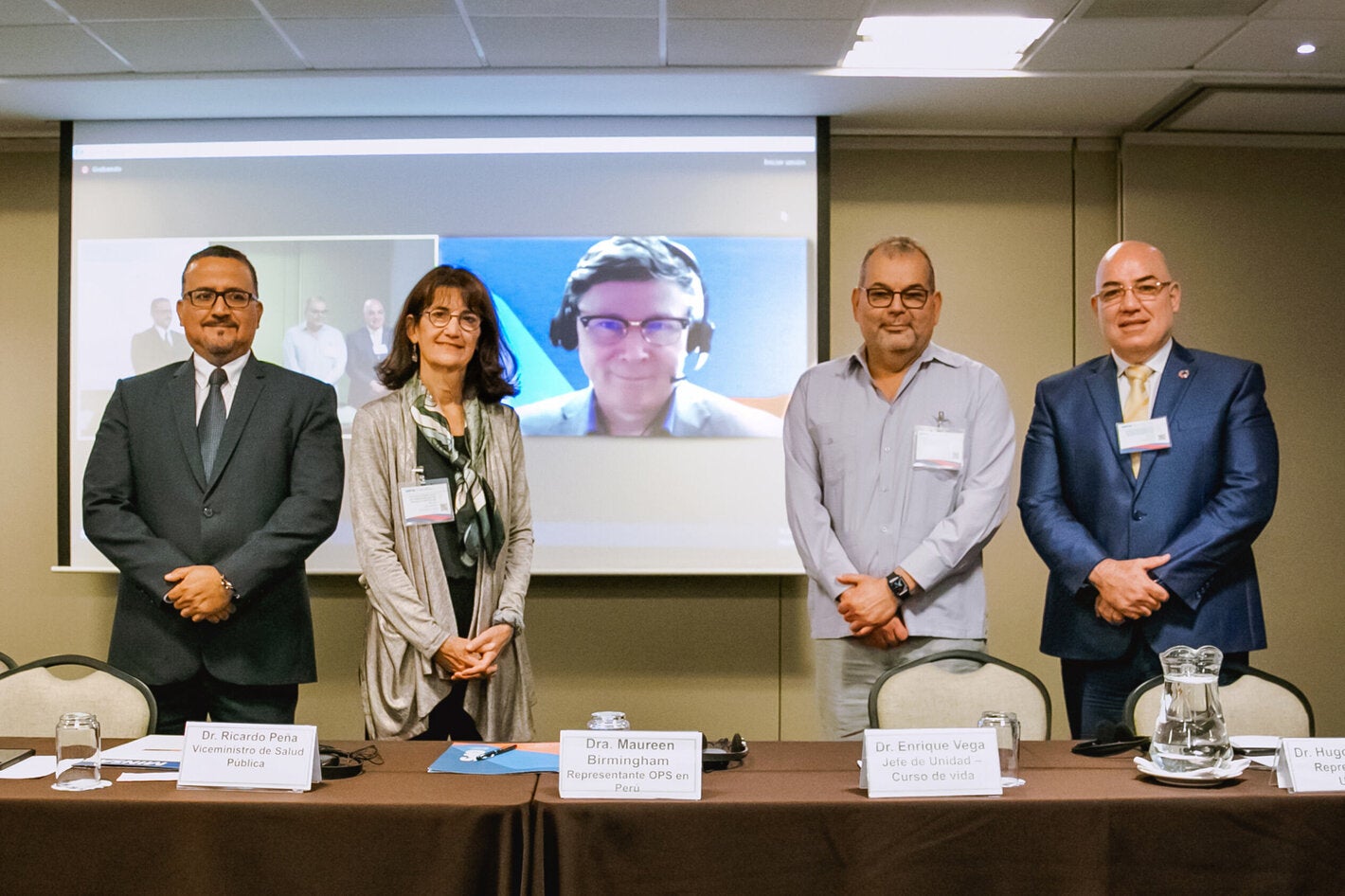
Lima, Peru, April 16-18, 2024 (PAHO) – The Pan American Health Organization (PAHO) convened technical experts, country representatives, and stakeholders to define country priorities and explore available tools and methodologies to strengthen integrated care in the first two decades of life using a life course approach.
Throughout the Regional meeting, presentations and panel discussions delved into crucial topics such as enhancing integrated, person-centered care through a Life Course approach, emphasizing the significance of the first two decades of life for health and development within the context of Primary Health Care (PHC), and assessing the current status of health and wellbeing in this demographic in Latin America and the Caribbean.
The life course approach emphasizes the importance of comprehensive care from the prenatal period to old age to promote health and well-being. This involves optimizing health trajectories through person-centered care, anticipatory management of risks and diseases, access to healthy environments, and the development of individual and community agency, which is essential for managing one's own health and ensuring healthy trajectories throughout life. Centered care for newborns, children, and adolescents is fundamental for promoting survival and well-being in the first two decades of life.
Additionally, participants engaged in group exercises to identify priorities and discuss the necessary changes to strengthen integrated care in the first two decades of life. Emphasis was placed on equipping the first level of care to provide integrated health services and establishing priorities for implementation.
The meeting underscored the importance of the life course approach and primary health care in promoting health trajectories from prenatal to old age. It emphasized the need for person-centered care, intersectoral collaboration, and empowering individuals and communities. Recommendations included prioritizing activities to optimize health, developing integrated networks, enhancing health information systems, and fostering community participation.
Overall, the meeting served as a platform for fruitful discussions and collaborative efforts towards promoting integrated care in the crucial first two decades of life, laying the foundation for improved health outcomes and well-being across the region.
The meeting was an in-person meeting in Lima, Peru and was attended by representatives from ministries and governmental institutions from Belize, Brazil, Chile, Costa Rica, Colombia, Dominican Republic, El Salvador, Guyana, Honduras, Jamaica, Panama, Peru, Paraguay, and Uruguay; as well as representatives from the World Health Organization (WHO), UNICEF, the Inter-American Development Bank (IDB), UNFPA, and the World Bank and members of the Youth for Health Group, and was made possible thanks to the support of the Universal Health Coverage - Partnerships.



